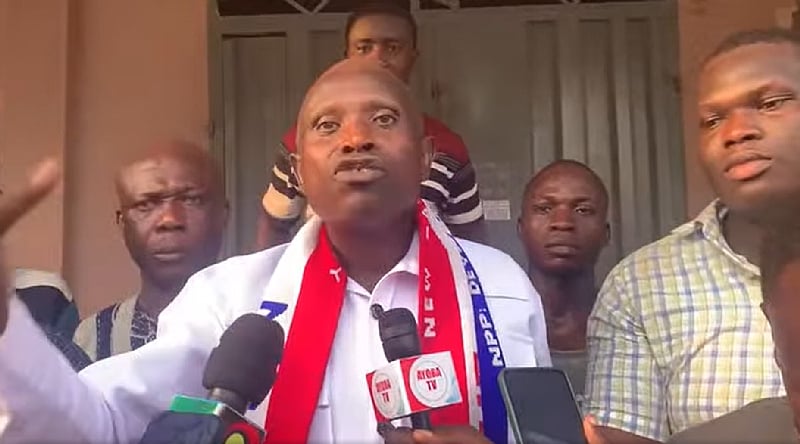The resignation of Appiah-Kubi Baidoo, a prominent figure within the New Patriotic Party (NPP) and a former parliamentary candidate for the Sefwi Akontombra Constituency, marks a significant development in the party’s internal dynamics as it gears up for the 2024 general elections. Baidoo’s departure, stemming from what he describes as years of persistent mistreatment and neglect by the party towards himself and his family, underscores the underlying tensions and unresolved grievances that can fester within political organizations, particularly during periods of heightened competition and strategic maneuvering. His exit serves as a potent reminder of the importance of internal cohesion and the delicate balance that must be maintained between individual aspirations and the collective goals of a political party.
Baidoo’s decision, formalized in a resignation letter addressed to the constituency chairman, highlights the breakdown in communication and conflict resolution within the NPP. His assertion that numerous attempts, including written appeals to the National Executives, failed to address his concerns indicates a systemic failure to acknowledge and rectify internal grievances. This perceived lack of responsiveness from the party leadership raises questions about the effectiveness of internal mechanisms for addressing member concerns and the potential consequences of neglecting such issues, especially when they involve prominent figures who have dedicated significant time and effort to the party’s cause. The resignation also raises the specter of a deeper malaise within the party, potentially impacting morale and unity as the crucial 2024 elections approach.
The former parliamentary candidate’s career within the NPP reflects a long-standing commitment and contribution to the party. Having served as District Chief Executive and contesting the parliamentary seat three times, Baidoo’s departure represents a significant loss of experience and local influence for the NPP in the Sefwi Akontombra Constituency. His years of service underscore the depth of his involvement in the party’s activities and his familiarity with the political landscape of the region. His resignation, therefore, carries considerable weight and signals a potential shift in the political dynamics of the constituency, particularly in the context of the upcoming elections. The void created by his exit presents both a challenge and an opportunity for the NPP, requiring a strategic approach to maintain its foothold in the constituency and address the concerns raised by Baidoo’s departure.
Baidoo’s letter acknowledges the impact his decision will have on his loyal supporters, expressing regret for the timing and the potential disruption it may cause. His apology to the “thousands of supporters and sympathisers” who stood by him throughout his political journey reveals the personal cost of his decision and the recognition of the potential fallout within his support base. This acknowledgement demonstrates a degree of accountability and empathy for those who have invested their trust and support in him. The impact on his supporters remains to be seen, but their reaction could significantly influence the political landscape of the constituency and the NPP’s electoral prospects.
The resignation adds to a growing pattern of internal dissent within the NPP, signaling potential challenges for the party as it prepares for the 2024 general elections. The accumulation of resignations and expressions of discontent suggest underlying issues that require urgent attention from the party leadership. Ignoring these internal fissures could further erode party unity and morale, impacting its ability to effectively mobilize support and compete effectively in the upcoming elections. The party will need to address these internal challenges proactively to minimize further damage and ensure a cohesive and unified front as it navigates the complexities of the electoral process.
Baidoo’s departure underscores the importance of effective internal communication, conflict resolution mechanisms, and a demonstrable commitment to addressing member concerns within political parties. The ability to manage internal dissent and foster a sense of unity and shared purpose is crucial for any political organization, especially in the lead-up to a major election. The NPP will need to carefully consider the implications of Baidoo’s resignation and the broader pattern of internal discontent to develop strategies for maintaining party cohesion, addressing member grievances, and ensuring a strong and unified front as it prepares for the challenges of the 2024 general elections. The party’s response to this situation will likely be closely scrutinized by both its supporters and its political opponents, as it navigates the complex political landscape and seeks to maintain its competitive edge.














